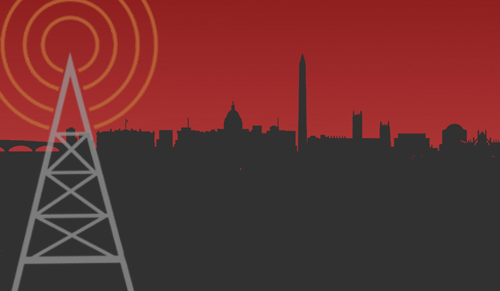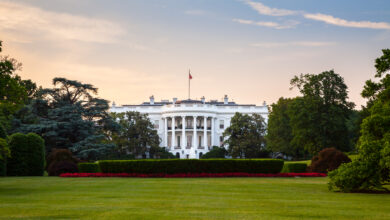Foreign Fight Club: The World Is Out of Order

The Quick Take
A quick look at the headlines this week 👀🏃🏻♀️
- War time? Citing threats from Iran, the White House announced last Sunday that it was sending an aircraft carrier strike group and Air Force bombers to the Persian Gulf. Yeah, that’s not good.
- Israel & Gaza: Violence erupted between Israelis and Palestinians in Gaza. Egypt brokered a ceasefire. Read below about how Eurovision factored into it.
- Turkey: So much for democracy. Turkey’s election commission, at the behest of President Recep Tayyip Erdogan, annulled the results of the Istanbul municipal elections, setting a re-do for June 23.
- South Africa: South Africans went to the polls this week. Results haven’t been announced, but odds are that the ruling ANC will retain power. The question everyone’s asking: What is the margin of victory?
- Thailand: Back in March, voters in Thailand backed Pheu Thai Party, the main opposition party. Yet, despite winning the most seats in parliament, the junta leader, who came to power after the 2014 coup, Prayuth Chan-ocha, is expected to retain his post as prime minister.
- China: Students marched in Beijing 100 years ago on May 4, 1919. For China’s Communist Party officials, it is considered the start of modern China.
- Trade: Speaking of China, those trade talks didn’t go so well. Looks like we’ll be rolling in tariffs. Read more below.
- Myanmar: Reuter journalists Wa Lone and Kyaw Soe Oo, who recently won a Pulitzer Prize for their reporting on a massacre of Rohingya Muslims by Myanmar troops, were released after spending 511 days in prison.

And, and…. Happy Mother’s Day to all the great moms out there. We honor you not just on Sunday, but everyday.
Foreign Fight Club: The World is Out of Order

Fight Club is reconsidering its first rule. This week, Foreign Fight Club has put a new twist on “don’t talk about Fight Club,” simplifying it to “don’t talk: fight.”
A year after it scrapped the Joint Comprehensive Plan of Action, aka the Iran Nuclear Deal, the White House has deployed fighter carriers to the Persian Gulf. “Unspecified threats” from Iran are the so-called reason. In response, the Iranian government said it will stop complying with certain aspects of the 2015 deal. These actions were taken without any dialogue, which is the bedrock of not just diplomacy — but any credible foreign policy.
Yet where there has been dialogue, such as with North Korea and China trade, there hasn’t been any meaningful exchange. Despite Trump’s declarations about Kim Jong Un, his “summit” with the North Korean dictator demonstrated how both the U.S. and North Korea were talking past each other. Trump, desperate for a “deal,” failed to acknowledge that Kim wouldn’t budge on getting rid of nuclear enrichment facilities; that his regime is committed to the nuclear weapon. Fantastical foreign policy. On Thursday, North Korea fired two short-range ballistic missiles.
Trade talks with China spiraled in the same downward trajectory. They seemed to be moving along in a positive direction last week, then, on Wednesday, Trump tweeted that China “broke the deal.” Reaching a deal with China, which involved numerous issues, was always going to be difficult. The country simply operates differently than the U.S., without transparency or accountability. Agreeing to not violate intellectual property, which was one stipulation, and not engage in currency manipulation, as the U.S. demanded, wasn’t something the Chinese were easily going to acquiesce on (let alone enforce) just to get to a deal, as Trump imagined.
Fueling Trump’s imagination is “America first,” his narrow and narcissistic world view that U.S. actions should enrich and benefit the U.S. first. In a different time, that would have worked — and indeed did. In the ashes of the Cold War, the U.S. emerged as the sole superpower, able to call the global shots. In today’s globalized and digital world, however, “America first” unilateralism merely backfires. Having made economic and social gains, most countries are no longer dependent on the U.S. or the West for that matter. Take Turkey, India, and, yes, China. Each is interested in putting its country “first,” throwing what we’ve long known as the liberal world order into a tailspin.
It’s not unreasonable to want America to be “number one.” Given today’s upended world order, however, where U.S. might has eroded, the U.S. would be wise to abandon confrontation and tough talk and opt for diplomacy and dialogue. That’s the only winning approach.
Iran War Games
- The White House is citing unspecified threats from Iran. In response, it deployed war ships to the Gulf, noting that they’re not looking for confrontation. Errr….the potential for escalation is real, say Kathy Gilsinan and Krishnadev Calamur. (Defense One)
- The Trump administration’s maximum pressure campaign: a prelude to war with Iran? Dina Esfandiary explores. (Bulletin of the Atomic Scientists)
- Iraq 2.0? The Trump administration’s actions could lead to war with Iran, even if that’s not what it wants, says Emma Ashford. (Inkstick)
- What do the world’s diplomats really think of Trump’s endgame in Iran? Sanam Vakil answers. (Foreign Affairs)
In the wake of the breakdown of the U.S.-China trade talks, Trump has raised $200 billion in tariffs on Chinese goods. That’s what China gets for trying to “renegotiate” the trade deal. China hasn’t responded yet, but we expect it will. What does all this mean? The ladies below help us try to understand, but one thing will be clear — expect prices to go up.
- Why did Trump upend the US-China trade talks? Kaitlan Collins, Donna Borak, and Kevin Liptak report. (CNN)
- Game over for China, says Rebecca Grant, as Trump lays down new trade rules. (Fox News)
- Charissa Yong on why and where the U.S. and China have trouble agreeing on trade. (Strait Times)
- And, in case you missed it, Elmira talked to Ann Lee about the trade deal with China. Lee touched on the perspective from Beijing – and what the Americans are getting wrong. (Project Syndicate)
- This year’s anniversaries of the 1919 and 1989 student protests in China will again highlight the Chinese authorities’ contradictory attitudes toward the two movements. It’s selective memory, says Denise Y. Ho. (Project Syndicate)
- President Xi Jinping’s recent commemoration of the centenary of China’s May 4th movement was a risky embrace, as it emphasizes both the current government crackdown on universities and the CCP’s own history of hypocrisy, says Jiayang Fan. (New Yorker)
To read the entire edition of FP Interrupted, click here. To Subscribe to FP Interrupted, click here.




